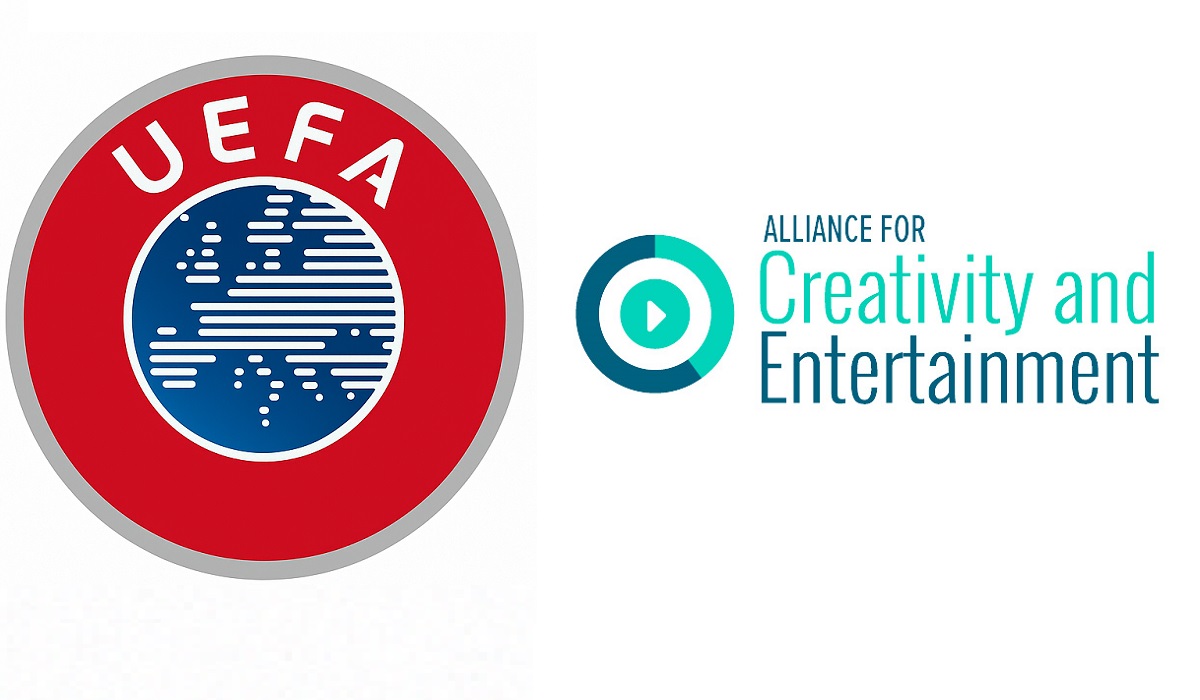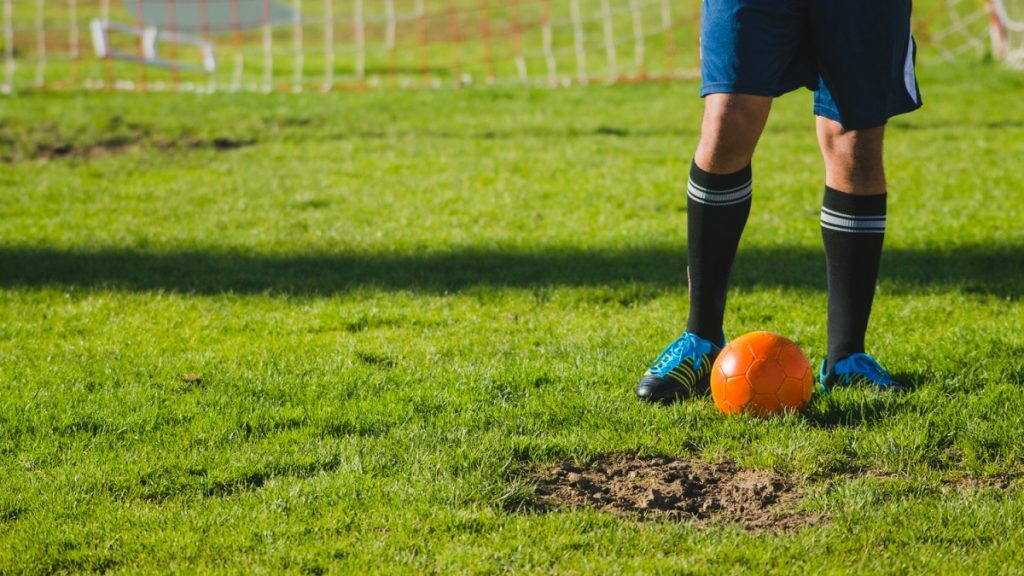European football governing body, UEFA, announced on 21st October 2025 that it had officially joined Alliance for Creativity and Entertainment (ACE), the global anti-piracy coalition. It becomes the first sports-governing body to join the anti-piracy coalition.
ACE, a United States-based group headed by the Motion Picture Association, is engaged in an ongoing fight against digital piracy, including illegal sports streaming. UEFA, on the other hand, is one of the largest and most valuable live sports rights holders in the world.

The move by UEFA to join ACE is expected to have far-reaching reverberations in the world of sports and in the fight against illegal streaming. Below is a detailed look at what the UEFA-ACE collaboration means going forward.
UEFA to take an active role in ACE anti-piracy enforcement
A joint statement by ACE and UEFA revealed that the sports governing body would take an active role in the anti-piracy coalition. UEFA will join Live Tier, the ACE component tasked with combating piracy of live events, particularly sports.
The Live Tier works with law enforcement agencies and other ACE partners to support anti-piracy enforcement actions aimed at dismantling illegal streaming operations worldwide.
Members of the ACE Live Tier also receive several perks, including real-time intelligence on piracy operations, global reach, partnerships with ACE’s law enforcement allies and private-sector networks, and international policy advocacy to strengthen the fight against piracy.
On top of that, Live Tier members have access to ACE’s apparatus for dismantling illegal streaming networks, as well as dedicated global hubs equipped with technology to monitor and dismantle piracy operations.
Anti-piracy operations targeting illegal sports streaming are to intensify
ACE is not a stranger to anti-piracy operations targeting illegal sports streaming. Some of its most notable operations in the recent past include Calcio’s shutdown in collaboration with DAZN and Streameast’s takedown in partnership with Egyptian authorities.
Likewise, UEFA has also been involved in anti-piracy operations. The most notable one is Operation Kratos, which dismantled an international piracy network reportedly used by over 22 million users.
With both organizations now collaborating, you can expect an increase in anti-piracy operations targeting illegal sports streams, particularly those involving UEFA competitions such as the UEFA Champions League.
The perks that UEFA will receive for joining the ACE Live Tier are expected to boost the organization’s anti-piracy capabilities, particularly in its ability to rapidly dismantle piracy operations during live events.
Additionally, UEFA can now leverage ACE’s massive global network, comprising more than 50 major media and entertainment companies, including Netflix, Amazon, Paramount Global, Universal Studios, Discovery, and others.
Therefore, unlike in the past, UEFA, ACE, and other media organizations will now share resources and coordinate enforcement actions, thereby presenting a more powerful, united front against piracy.
The growing threat of piracy in football
UEFA’s decision to join ACE reflects the growing threat of sports piracy, particularly in football.
According to a report by Synamedia and Ampere Analysis, piracy costs the sports streaming industry around $28 billion annually.
The problem is especially prevalent in Europe, where, according to a 2023 EUIPO IP perception study, 14% of EU citizens use illegal streaming to watch sports.
UEFA has been particularly hard-hit by piracy, with some of its major competitions attracting millions of illegal streams. A good example is the 2017/18 season Champions League knockout stage matches, which received around 5 million illegal streamers.
UEFA member associations have also been dealing with a growing threat of piracy. La Liga loses €600-700 million annually, Serie A loses over €300 million per year, and Premier League clubs lose over £1 million per game in sponsorship revenue due to illegal streaming.
The sad reality of illegal streaming in football is that it doesn’t just take money away from UEFA, its member associations, football clubs, and broadcasters. Instead, it also severely affects the development of football, especially at grassroots levels.

Therefore, UEFA’s decision to join ACE is a significant win for both the organization and the entire European football ecosystem.
Stakeholders welcome UEFA and ACE collaboration
Various stakeholders have welcomed UEFA’s decision to join the ACE in its fight against digital piracy.
Guy-Laurent Epstein, UEFA’s executive director of marketing, labelled the move as a landmark moment in UEFA’s global strategy for its content protection:
“This partnership allows us to expand our enforcement capabilities, deepen our existing collaboration with industry leaders, and leverage ACE’s proven capabilities to disrupt illegal services.”
ACE also welcomed the decision, with Charles Rivkin, ACE’s and Motion Picture Association’s chairman, lauding it as one that strengthens the anti-coalition’s efforts to detect and dismantle digital piracy worldwide.
“UEFA’s membership bolsters ACE’s ability to defend sports content from nefarious players in real time – and amplifies the reach of our efforts to protect football fans and broadcasters across the globe.”
Challenges still exist in tackling illegal sports streaming
UEFA and ACE’s collaboration is a significant milestone that will strengthen the fight against illicit sports streaming. However, even with their combined efforts, both organizations are still likely to face several challenges in tackling piracy.
One of the biggest challenges in stopping illegal sports streaming is the agile, evasive nature of operators of piracy websites.
Once an illegal site is taken down, operators often use domain-hopping techniques to launch mirror sites, playing a game of whack-a-mole with rights holders and copyright enforcement agencies.
Furthermore, piracy enforcement actions are often slow, posing a significant challenge when dealing with live sports streams that are available for only a limited period.
To make matters worse, slow cooperation (or lack thereof) in some countries makes a global response to piracy more difficult.
However, the most significant challenge UEFA and ACE face is the massive demand for illegal sports streaming.
Many of the illegal streamers are football fans, especially young people, who turn to pirated websites due to the high costs of legal platforms.

Additionally, UEFA and other European football rights holders often sell fragmented broadcast rights to numerous streaming services.
Consequently, fans have to subscribe to multiple services to enjoy games, which can be expensive and inconvenient, driving more fans towards illegal streams.
Therefore, rights holders like UEFA must find ways to make live sports more affordable and accessible, thereby helping drive down demand for illegal streaming.